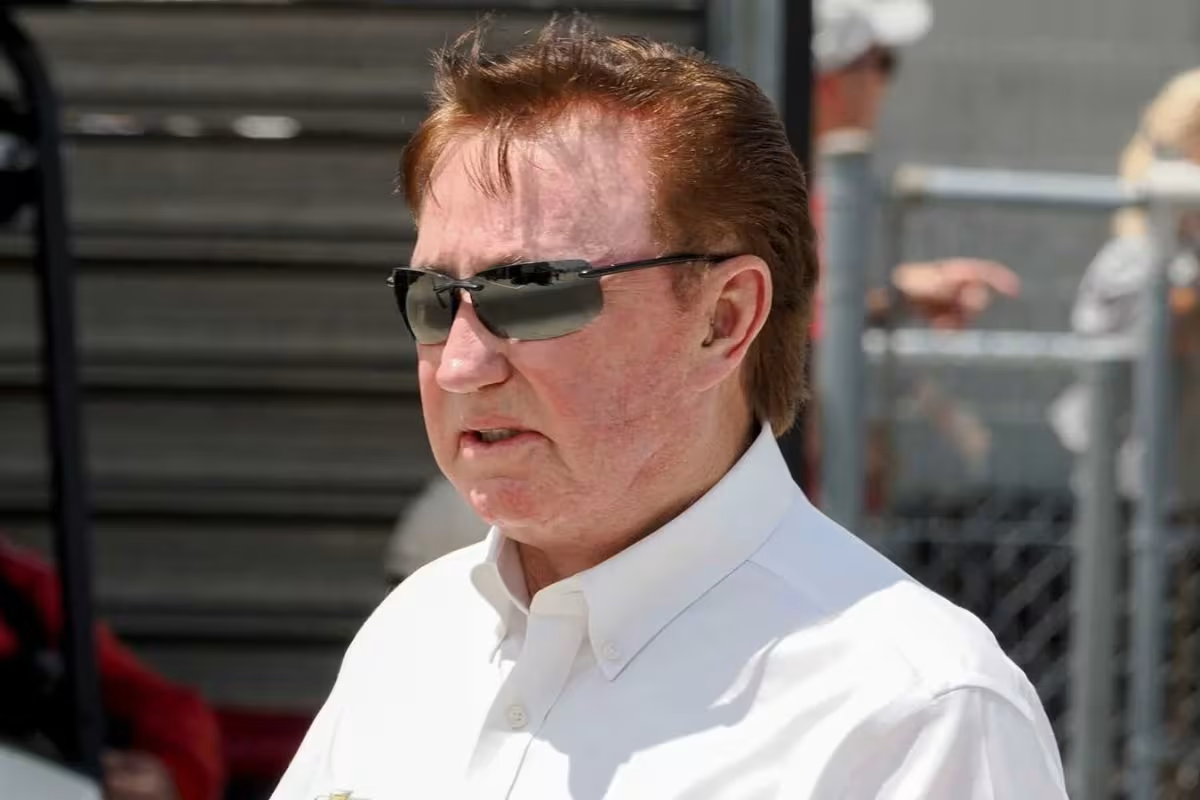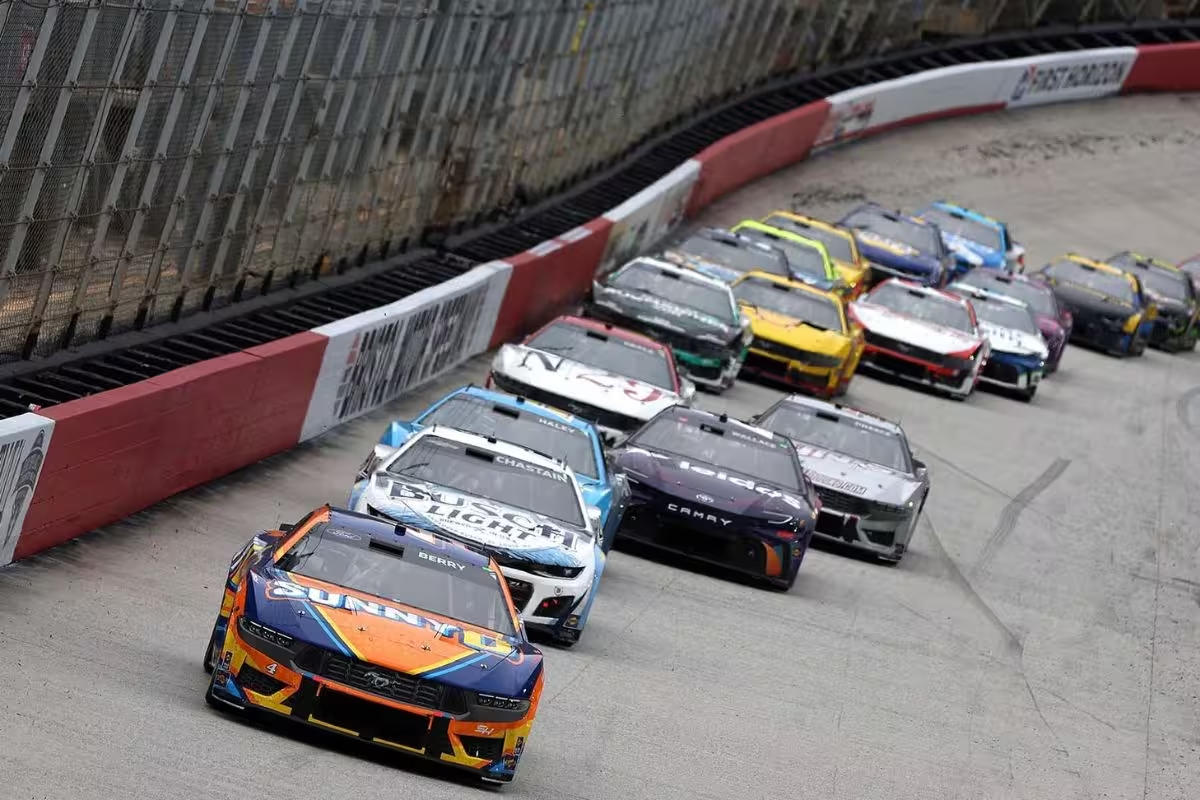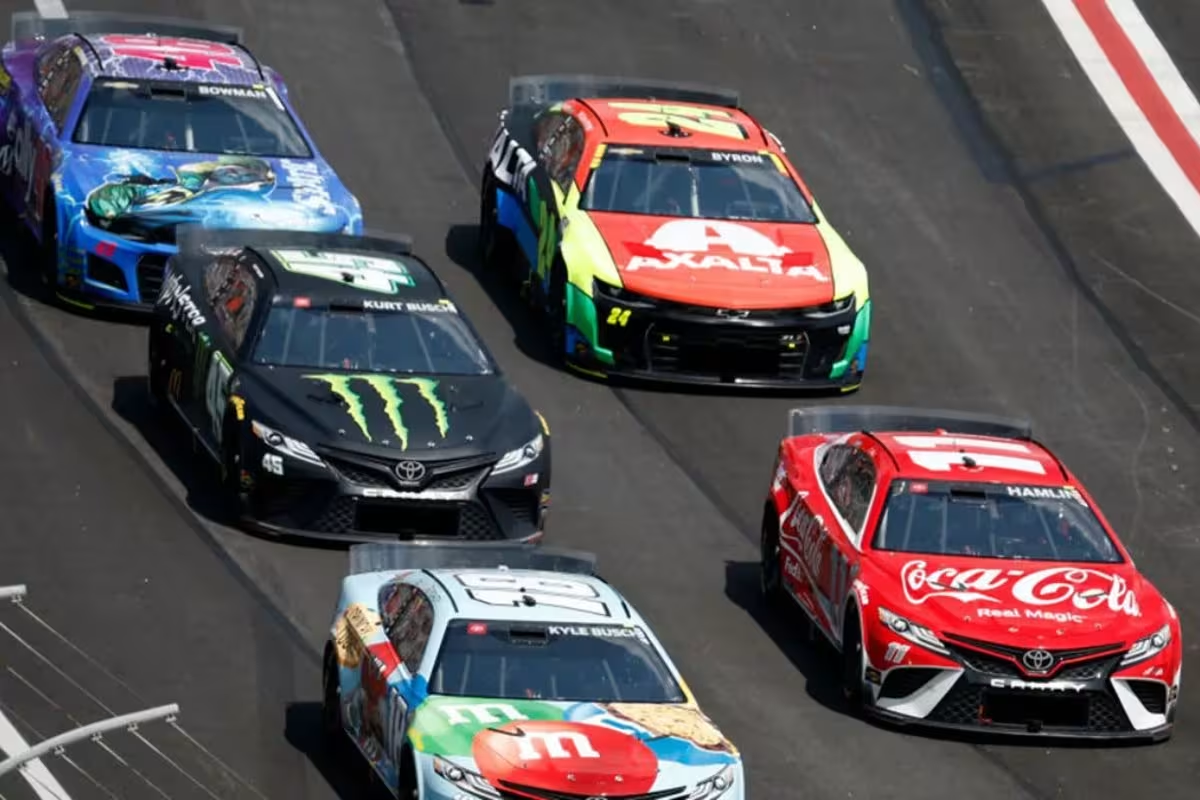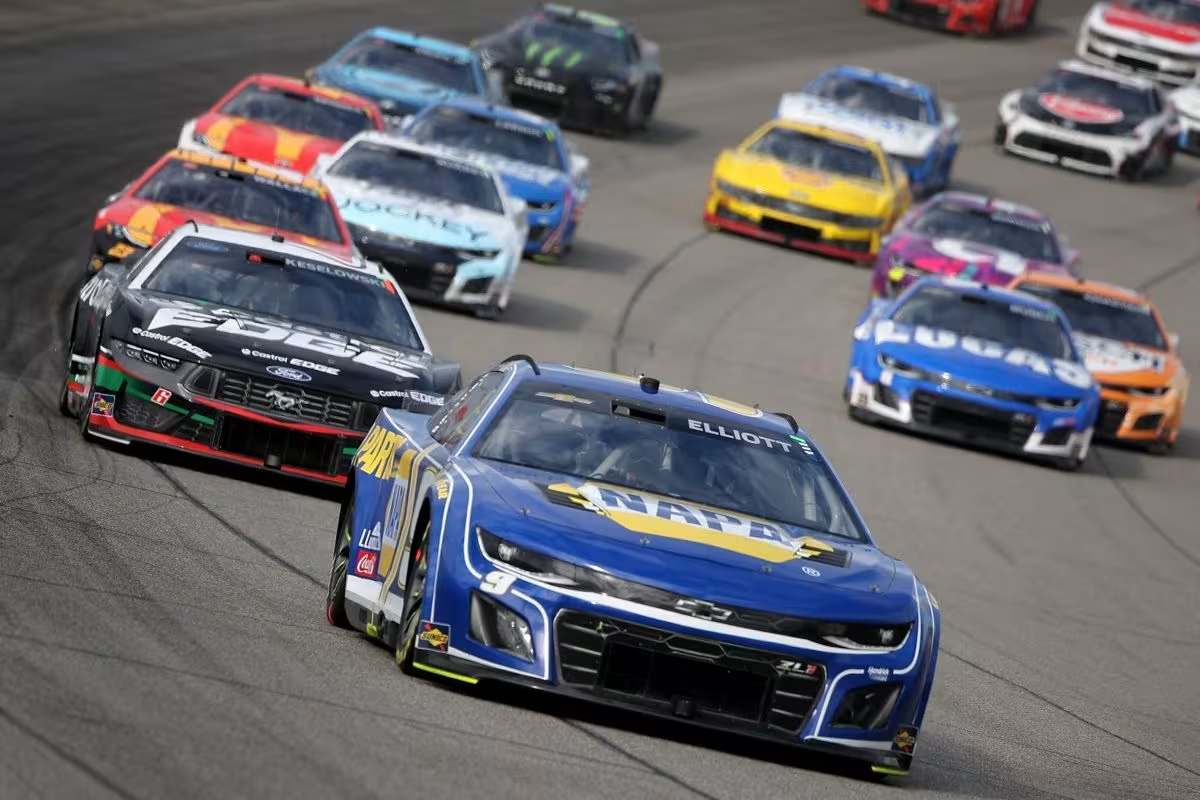Richard Childress’s NASCAR Monopoly Confession: A major shift is happening in NASCAR with the recent anti-trust lawsuit filed by 23XI Racing and Front Row Motorsports against the organization itself. This lawsuit highlights the struggle between racing teams seeking fair treatment and NASCAR’s long-standing control over the sport. Team owners, including Richard Childress, feel pressured and silenced, leading to growing frustration. If 23XI and FRM succeed, it could change the NASCAR forever.
Key Highlights
- Denny Hamlin criticized NASCAR, alleging unfair practices that undermine the rights and financial stability of racing teams.
- Hamlin emphasized the long-term negative impacts of NASCAR’s current governance on independent teams and the sport’s overall health.
- Richard Childress acknowledged concerns about coercive agreements among team owners, highlighting the need for reform in NASCAR’s operations.
- Both Hamlin and Childress pointed to a significant decline in sponsorships as a critical issue affecting team income and competition.
- The ongoing lawsuit by 23XI Racing and FRM aims to challenge NASCAR’s monopolistic control and push for greater transparency and fairness.
The Lawsuit
The recent anti-trust lawsuit filed by 23XI Racing and Front Row Motorsports (FRM) against NASCAR is a major turning point for the sport. This legal challenge highlights the ongoing struggles between teams wanting fair treatment and NASCAR’s long-held control over racing. By taking this bold step, 23XI and FRM are standing up for their rights and could change the competitive landscape of stock car racing.
The reasons behind this lawsuit show deep frustration among team owners about NASCAR’s tight grip on the sport. One anonymous team owner admitted they were afraid to challenge NASCAR because of the risk of losing charters. This fear reflects a culture of compliance in the garage, making many teams hesitant to voice their concerns. However, the actions of 23XI and FRM signal a change, suggesting that teams may need to work together to challenge the current system.
If Denny Hamlin and his team succeed in this lawsuit, it could lead to changes that benefit all of NASCAR. Other teams may start to rethink their positions, sparking conversations about fairness and governance in the sport. This moment is crucial for the NASCAR community, as the fight for justice and fairness could reshape the future of racing.
The Lawsuit’s Basis
Frustrated by years of perceived inequity, 23XI Racing and Front Row Motorsports (FRM) have articulated their grievances in a detailed 46-page lawsuit that challenges NASCAR’s monopolistic practices. The crux of their argument centers on the assertion that NASCAR operates as a “closed-door shop,” engaging in covert dealings that disproportionately benefit the France family at the expense of other racing teams. This lawsuit is not merely a complaint but a call for accountability in a sport that fans and sponsors hold dear.
The lawsuit’s basis can be summarized through three primary assertions:
- Unlawful Monopolization: The claim alleges that the France family has maintained a monopoly over premier stock car racing, stifling competition and innovation within the sport.
- Economic Harm: The plaintiffs contend that NASCAR’s practices have led to considerable economic disadvantages for independent teams, undermining their ability to thrive in a competitive environment.
- Lack of Transparency: The lawsuit criticizes the opaque decision-making processes within NASCAR, arguing that this lack of transparency contributes to systemic inequities that favor a select few over the broader racing community.
Specific Allegations Against NASCAR
Citing a range of perceived anti-competitive practices, 23XI Racing has laid out specific allegations against NASCAR that underscore their claims of unlawful monopolization. The accusations are multifaceted, suggesting a systematic approach by NASCAR to consolidate power and restrict competition within the sport. Importantly, 23XI alleges that NASCAR has acquired a majority of premier racetracks, ensuring exclusivity for their races.
Furthermore, the governing body is accused of imposing exclusivity agreements on NASCAR-sanctioned racetracks, further diminishing opportunities for rival series. The acquisition of the Automobile Racing Club of America (ARCA), which previously served as a major competitor in stock car racing, is also highlighted as a tactical move to eliminate competition.
Another critical grievance involves NASCAR retaining ownership of Next Gen parts and cars, effectively restricting teams from exploring independent avenues for participation in other stock car races. This control extends to mandating that teams procure parts exclusively from suppliers designated by NASCAR, creating a single-source dependency that stifles innovation and increases operational costs.
These allegations, while historically considered mere rumors within the NASCAR community, have now been formalized through legal channels, igniting a discourse on the rights of drivers and the governance of the sport. The consequences of these claims may echo through the sport, reminiscent of the historical struggles for driver autonomy and rights seen as far back as the early 1960s.
Richard Childress and Denny Hamlin’s Perspectives
Conversely, Hamlin’s perspective is one of frustration and disbelief. He criticizes the complacency displayed by some team owners, including Childress, who seem to downplay the coercive circumstances under which they signed the agreement. Hamlin argues that the long-term implications are dire, emphasizing that the current arrangement primarily benefits NASCAR at the expense of team owners’ rights. He outlines his concerns as follows:
“I didn’t have a choice… we had to sign.” – Childress
- Coercive Environment: Many owners felt pressured to sign, raising questions about the fairness of the agreement.
- Lack of Upside: Hamlin highlights that the 2025 agreement offers no benefits for team owners, creating an imbalanced power dynamic.
- Ignoring Dissenting Voices: Hamlin challenges the notion that dissent should be overlooked, insisting that the concerns of those who felt coerced must be addressed.
The Sponsorship Crisis and Future Outlook
In the backdrop of dwindling sponsorships, NASCAR faces a critical juncture that threatens its financial stability and long-term viability. The departure of key sponsors like GEICO and FedEx highlights a troubling trend; the number of Fortune 500 companies involved with NASCAR has plummeted from 150 in 2008 to fewer than 75 in 2024. This loss is particularly alarming given that 60-80% of many teams’ income derives from sponsorships. The recent $7.7 billion media rights deal, while promising, may not sufficiently compensate for the lost financial backing.
Denny Hamlin’s critique of NASCAR’s management highlights the systemic issues confronting the sport. He argues that the current model, which dissuades investment from larger entities, is unsustainable. The dwindling number of charter members—11 out of 19 have exited—shows a broken system that requires urgent reform. Hamlin’s assertion that the sport’s revenue-generating opportunities have been curtailed resonates with many in the NASCAR community.
“We heard NASCAR say, ‘Well, we don’t want big investment companies coming into our sport. We want old drivers being car owners.’ They tried it and it failed for one reason or another. So when’s it stop? When does it stop? We came and when we brought out facts that in 2016, there were 19 charter members. 11 of those are gone. They’re gone…”
“I wish people understand how broken this system is. I think as time goes on and things get discovered, you will see more specifics on why we believe that this is an unfair system and an unfair agreement…”- Hamlin
For NASCAR to thrive, it must cultivate a collaborative environment where teams can utilize their intellectual property and attract new sponsors. Addressing these challenges head-on will be pivotal in shaping the future of the sport.
News in Brief: Richard Childress’s NASCAR Monopoly Confession
The ongoing dispute between Denny Hamlin and NASCAR reveals important tensions within the sport related to rights management and sponsorship. The allegations in the lawsuit focus on possible inconsistencies in contracts and raise questions about the future of sponsorship in NASCAR. Richard Childress’s comments add to the complexity of the situation. Finding a resolution to these conflicts will be crucial for maintaining the sport’s integrity and financial health moving forward.
ALSO READ: “I Just Don’t See Any Greatness”: Denny Hamlin’s Crew Chief on NASCAR’s Ongoing 2-Year Struggles




